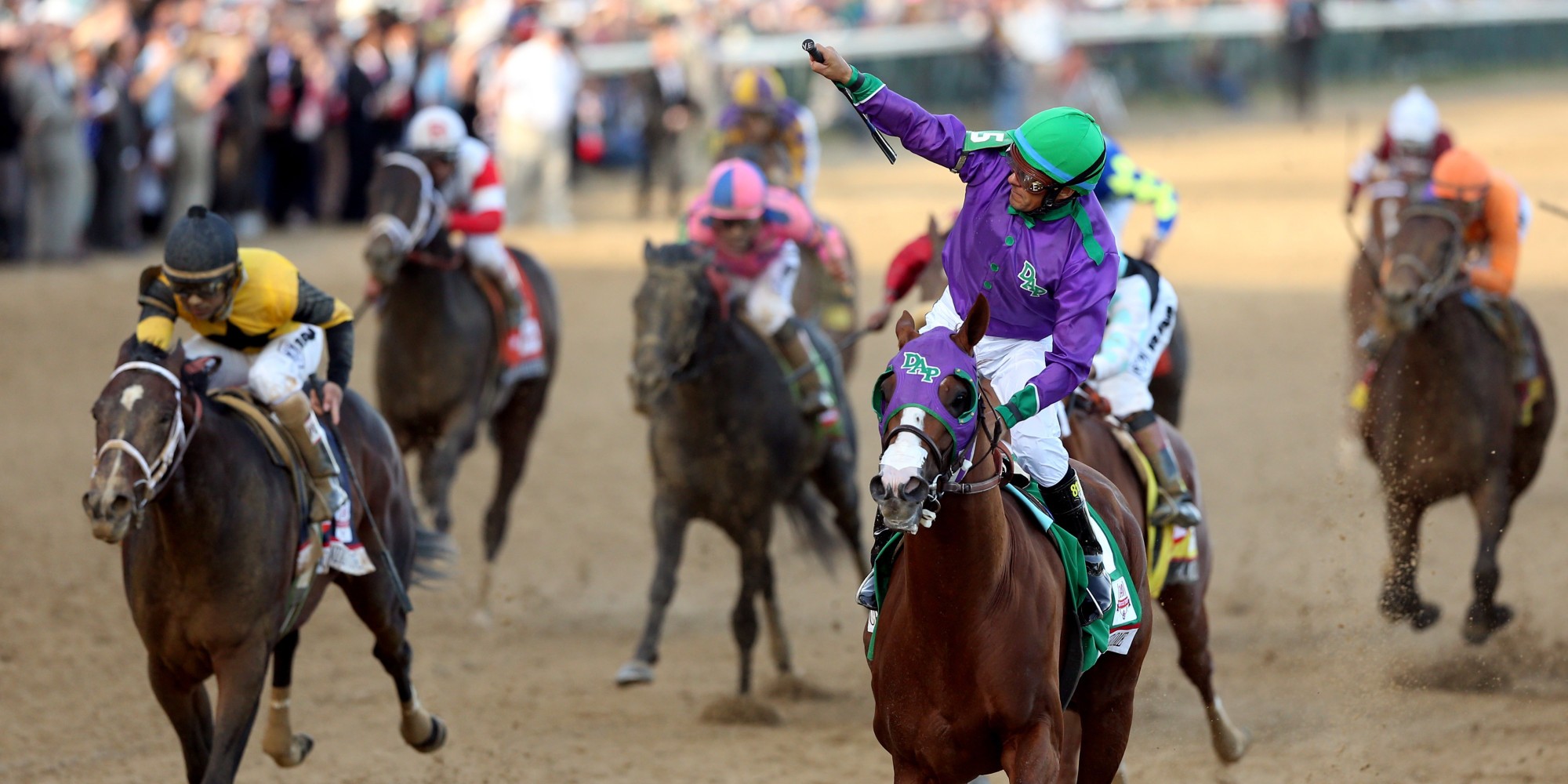
Any longtime reader of this column knows I’m a sucker for horse racing’s Triple Crown. The NBA’s conference finals are upon us (and, not incidentally, the NHL’s) and baseball season is in full swing. But I’ll be spending the next three weeks waiting for the most important two-and-a-half minutes on the 2014 sports calendar.
On June 7th at the Belmont Stakes in Elmont, New York, California Chrome will become the 12th winner of the Triple Crown — and first in 36 years — or the 13th horse since 1979 to win the Kentucky Derby and Preakness . . . but not the legendary triple. Race fans have endured the longest Triple Crown drought since Sir Barton first pulled the trifecta in 1919. (The next-longest drought was merely 24 years, from 1949 through 1972, a period during which seven horses won the first two legs.) A man or woman could run for U.S. president today having been born after Affirmed won the last Triple Crown (in 1978).
In 1972, Dallas Cowboys running back Duane Thomas asked a question that would be hilarious, were it not so intelligent: “If the Super Bowl is the ultimate game, how come there is another one next year?” There is indeed a Super Bowl every year. And a World Series. And the Masters. And the Kentucky Derby. Even the Olympics and soccer’s World Cup come along every four years. Eight World Cup champions have been saluted, it should be noted, since the last Triple Crown winner (not counting the Argentina team that won in June 1978, the same month Affirmed gained immortality). But a Triple Crown winner? There is a very reasonable chance we’ve seen the last . . . and the number of those old enough to remember the summer of ’78 is declining every year.
There have been reports that California Chrome may not even enter the Belmont. Something about the nasal strips he wore in winning the Preakness last Saturday. Let the death knell for horse racing be sounded if we are denied a Triple Crown attempt over a patch of cloth that may or may not improve the breathing of a thoroughbred in full flight. Belmont officials can solve this problem by requiring all horses to wear the nasal strips. If they’ve helped California Chrome to the Derby and Preakness winner’s circles, what right-thinking trainer wouldn’t want such an equipment fix?
Sports are about the unpredictable, the “never-seen-before.” Thirty-six years is a long wait for anyone not wearing Chicago Cubs gear. Why has it been so long since a Triple Crown, and why have the likes of Spectacular Bid, Sunday Silence, Silver Charm, Smarty Jones, and Big Brown come up one race short? Here’s an amateur’s theory: the generational effect of mass breeding. Every year thoroughbreds create a new generation of potential champions. A deeper and wider pool of these genetic wonders decreases the likelihood of any single horse standing above its class of three-year-olds. Add to this the lung-squeezing length of the Belmont (one-and-a-half miles), and only the greatest — measured in terms two-legged athletes don’t know — prevail. Remember, Secretariat’s heart was discovered to be nearly three times the size of a normal one, even those of the four horses brave enough to chase him in the 1973 Belmont.
Few teams or athletes gain the support of an entire country without wearing that country’s colors in international competition. It’s safe to say, though, that California Chrome will have an entire nation of race fans in the saddle with jockey Victor Espinoza on the first Saturday in June. History, as measured by more than three decades of longing, can be changed in less than three minutes of palm-sweating, pulse-racing action. Can a horse feel the weight of such expectations? If it’s the right horse, it won’t matter.